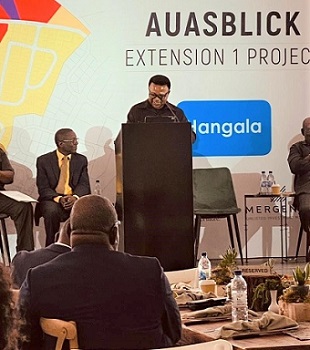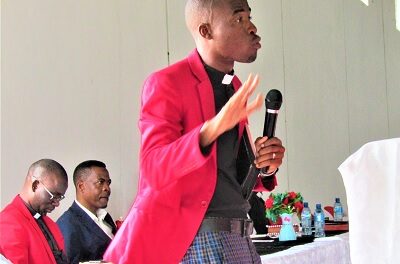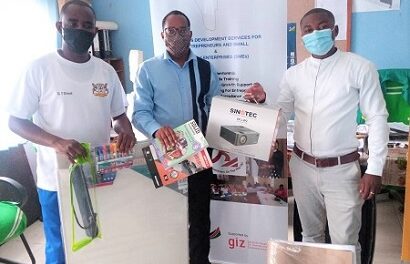
Over the past 10 years, in the period between November 2011 to June 2022, GIPF has serviced over 5,591 erven and constructed 6,582 housing units country wide across the living standards measure category, the bulk of which is in the affordable housing category.
This was said by GIPF CEO Mr David Nuyoma yesterday at the launch of new housing projects for the upmarket suburb of Auasblick in Windhoek.
Nuyoma highlighted that GIPF’s recent notable developments within Windhoek funded through various fund managers over the past 4 years are the following developments: Rocky Crest extension 4 comprising of 231 single residential plots, 19 general residential plots, 22 business plots and 2 institutional plots;
Thorn Valley near Elisenheim comprising of 77 plots;
Hosea Kutako Apartments comprising of 48 units;
Riverport apartments comprising of 93 units;
Otjomuise Extension 10 comprising of 71 units;
Otjomuise Lifestyle Estate comprising of 374 rental units, and 324 units still to be constructed;
Jedija Apartments in Kleine Kuppe comprising of 60 units;
ERF 1470 Khomasdal comprising of 234 units;
Khomasdal extension 16 comprising of 432 rental units and Sturrock Windhoek North comprising of 26 units.
“The Phase 1 funding for Auasblick comprising of 98 single residential erven is a welcome addition which will bring the total land servicing to 5,689 plots,” Nuyoma said to those in attendance who included Mr. Erastus Uutoni, the Minister of Urban and Rural Development, Ms Sade Gawanas, the Mayor of Windhoek, Mr. Martin Inkumbi, the CEO of the Development Bank of Namibia, and Dr Leake Hangala, Chairman of the Hangala Group of Companies.
Nuyoma said that the private markets allocations at GIPF are termed alternative investments and comprise of unlisted investments in real assets like property and infrastructure; equities and debt into businesses.
“These mandates must meet the minimum investment objective of commensurate risk-adjusted returns, whilst achieving socio-economic impact. Mandates for funding the construction of residential top structures and bulk services require a certain level of pre-sales for downside protection.”
The allocations to residential property are part of a larger diversified property exposure with bulk services competing with other economic infrastructure. “GIPF is committed to funding the real economy within Namibia, of which bulk infrastructure for land servicing is an integral investment for socio-economic impact,” Nuyoma stated.
According to Nuyoma the Auasblick project is an exemplary transaction in that it has enabled risk sharing amongst investors in the likes of DBN on the debt side and Mergence with equity.
“The transaction is also a public private partnership with the City of Windhoek, allowing for accelerated development. Transactions of this kind have high multiplier effects for job creation and money circulation.
“During servicing and construction, you tend to have informal traders sell the famous vetkoek and other foods to workers. This example serves to demonstrate money circulation even at the lowest level.
“Finally, transactions of this nature endure for up to 48 months with IRRs in their mid teens. So not only are they impactful but they contribute positively to our investment objectives, giving impetus to our catalytic funding model at GIPF.”
For this to be realized, “our local authorities have to be partners in contributing land as done by the City of Windhoek. Land at affordable rates is a condition precedent for any viable public private partnership project such as the one being launched today,” Nuyoma said.
In the photo: GIPF’s CEO David Nuyoma speaking at the launch of yet another housing investment.







